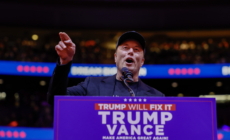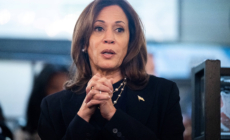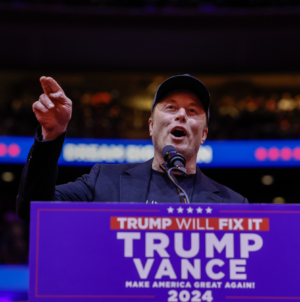-
California EV sales inch up but Tesla posts a decline - 12 mins ago
-
Full List of Celebrities Endorsing Donald Trump: Kid Rock, Mel Gibson and More - 15 mins ago
-
The Red Hook Waterfront Is a Developer’s Dream. Could It Come True? - 18 mins ago
-
NBA Player Props: Best Bets for Wednesday (October 30) - 50 mins ago
-
Election and law enforcement officials brace for Nov. 5 as early voter L.A. turnout is slow so far - 54 mins ago
-
Floods in Spain’s Valencia Region Kill More Than 60 - about 1 hour ago
-
Kamala Harris Responds to Biden’s ‘Garbage’ Comment - about 1 hour ago
-
When should a candidate apologize? The question roils the Jurado-De León race - 2 hours ago
-
Israel Orders Residents of Baalbek in Eastern Lebanon to Evacuate - 2 hours ago
-
Jeff Bezos Trying To ‘Curry Favor’ With Donald Trump: Megyn Kelly - 2 hours ago
China Reacts to Sam Altman’s AI Arms Race Warning
China has responded to Sam Altman’s recent op-ed in which he characterized artificial intelligence development as a “race” between democracy and authoritarianism.
Writing in the Washington Post, the OpenAI CEO framed the future of AI as a tug-of-war between democratic Western countries and authoritarian nations in Europe and Asia, singling out Russia and China as the largest threats.
However, China rejected the narrative, and told Newsweek that the description of China by Altman was “groundless.”
Altman wrote: “It’s time to decide which path to take. The United States currently has a lead in AI development, but continued leadership is far from guaranteed. “Authoritarian governments the world over are willing to spend enormous amounts of money to catch up and ultimately overtake us. Russian dictator Vladimir Putin has darkly warned that the country that wins the AI race will “become the ruler of the world,” and the People’s Republic of China has said that it aims to become the global leader in AI by 2030.

Photo by ANDREW CABALLERO-REYNOLDS/AFP via Getty Images
“These authoritarian regimes and movements will keep a close hold on the technology’s scientific, health, educational and other societal benefits to cement their own power.
“If they manage to take the lead on AI, they will force U.S. companies and those of other nations to share user data, leveraging the technology to develop new ways of spying on their own citizens or creating next-generation cyberweapons to use against other countries.”
The Chinese Embassy in the U.S. rejected the characterization of America and China as competitors rather than collaborators, and highlighted recent examples of cooperation on artificial intelligence.
A spokesperson for the Chinese Embassy told Newsweek: “China has consistently advocated that the development of artificial intelligence should adhere to principles that are human-centered and promote benevolence. China believes that AI development should be fair and inclusive, ensuring that all countries equally enjoy the benefits brought by AI, and has no intention of seeking dominance in this field.
“In July this year, the 78th United Nations General Assembly adopted China’s proposed resolution on ‘Enhancing International Cooperation on AI Capacity Building’ by consensus, with over 140 countries, including the United States, co-sponsoring it.
“In May this year, China and the United States held the first intergovernmental dialogue on AI. China expressed its support for strengthening global AI governance, advocating for the United Nations to play a central role.
“China is willing to strengthen communication and coordination with the international community, including the United States, to form a widely agreed-upon global AI governance framework and standards. The accusations are groundless.”
Michael Huang, a representative of PauseAI, an organization campaigning for the regulation of future AI development, told Newsweek that future regulation of AI needed international focus, and that the framing of development as a “race” could lead to risky leaps forward in the technology.
Huang said: “Just as nuclear weapon proliferation increases the risk of an accidental or deliberate nuclear war, an AI race increases the risk of an accidental or deliberate AI catastrophe.
“The U.S. should “trust, but verify” other nations to establish a much-needed international AI safety treaty. Companies and government agencies should be incentivized to accelerate AI safety research instead.”
Do you have a story we should be covering? Do you have any questions about Sam Altman and OpenAI? Contact LiveNews@newsweek.com.
Uncommon Knowledge
Newsweek is committed to challenging conventional wisdom and finding connections in the search for common ground.
Newsweek is committed to challenging conventional wisdom and finding connections in the search for common ground.
Source link
















